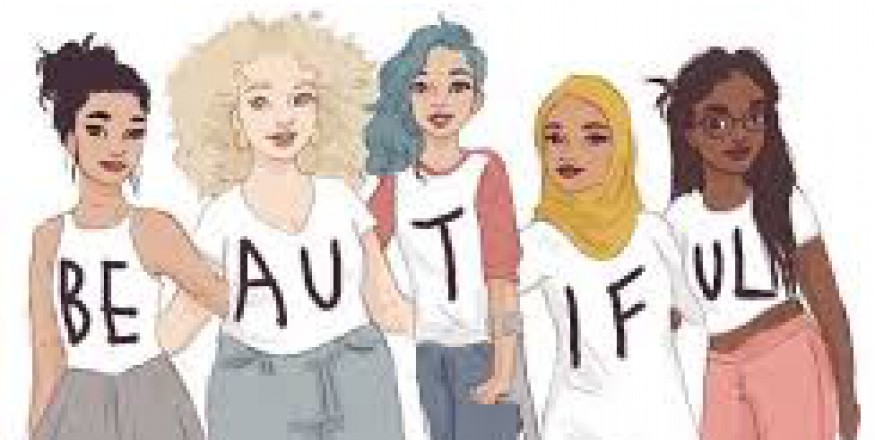It’s the new year, and when a new year starts, there are always New Year's resolutions. Resolutions can be great—they can motivate people to finally do things that they've been on the fence about, and motivate them into doing things they probably should’ve gotten around to maybe two or three New Year's resolutions ago.
Most times when people create these resolutions, they have to do with their health and body. A majority of these have to do with losing a certain number of pounds, joining a gym, changing their eating habits, or any combination of health and fitness-related changes that result in the scale going down. While I’m all for getting healthy and working to improve yourself--I think there can be a lot of things about the fitness and weight-loss culture that can be damaging to someone’s self-esteem.
In direct contrast to the dieting culture that you see plastered on magazines at the store checkout aisle; and commercials that you see at every break during your favorite TV show, there’s also a huge push for body positivity. Body positivity is exactly what it sounds like—embracing and being positive about the body that you’ve been given. It’s not an anti-fitness movement, but rather it promotes a mentality that you should work on your body because you want it to be stronger and healthier, not because you hate it and want to punish yourself.
Even with something as great as a movement for body positivity, there are still a lot of things that people choose to turn a blind eye to. Most of the time, when people think of clothing brands or modeling companies being “body positive”, they picture advertisements and fashion shows including models that aren't just in size(s) 00 to 4. While that's part of what this movement is about, that’s not the entirety of it.
Body positivity is about loving all sorts of bodies, no matter how large or small they are. It means not shaming people for being thin the same way you shouldn't shame people for being fat. And this doesn’t only apply to women. Men are included in the body positivity movement, even if it’s not currently as “trendy” to talk about it. It’s for all of the men out there who struggle to put on muscle, or for the men out there who, just like women, have trouble losing weight where and when they want to.
The face of the body positivity movement has almost always been curvy women. While I support women of all shapes and sizes, it’s important to realize that men deserve representation in this movement as well. I’ve seen, during my time working as a gym employee, just as many men struggling with body image as women, and it’s just as frustrating for whoever is struggling with it regardless of their gender.
And it’s not just about weight, either. No one seems to talk much about that though. But being body positive doesn’t mean simply not judging people because of their number on the scale. It also includes things like acne, body hair, scars, physical disabilities, and self-presentation. It’s about not just being “tolerant” of these things, but learning to see the beauty in them and the person that has them. Learning how to be positive towards your bodies and other people’s means unlearning most of what has been imprinted onto us by the media and even the other people we choose to surround ourselves with. It’s learning to not be overly critical of the body that you have but also learning that it isn’t your place to criticize other people for the body that they have either. All of the things that society has taught us to try and hide, or to not talk about, or to be ashamed of, are things that we need to learn to love in not only each other but in ourselves as well.
There are only so many things about our bodies that we can control, but that list of things can be completely different from the list of things that we want to control. Because sure, I could shave all of my body hair every other day but that’s exhausting after a while. I could cover up my acne with layers of makeup, but that's both exhausting and expensive after a while (because have you seen the prices of makeup?). It’s about learning that just because I do or don’t want to do something doesn’t mean that I’m wrong or right, or that people doing the opposite of me are wrong or right.
That is the essential message of the body positivity movement: there is no wrong way to have a body.
Whether you’re a man or woman, or anything in between, your body is great. If you want to change it, make sure it’s because you want your body to be better, healthier, stronger, but not because you think the body that you currently have is bad, because there is no such thing. Body positivity isn’t anti-change or anti-improvement, it’s about changing the mentality that we have regarding our bodies and the bodies of other people so that our desire to change stems out of a love for the bodies we have and not the hatred of them.
ns 15.158.61.8da2





















